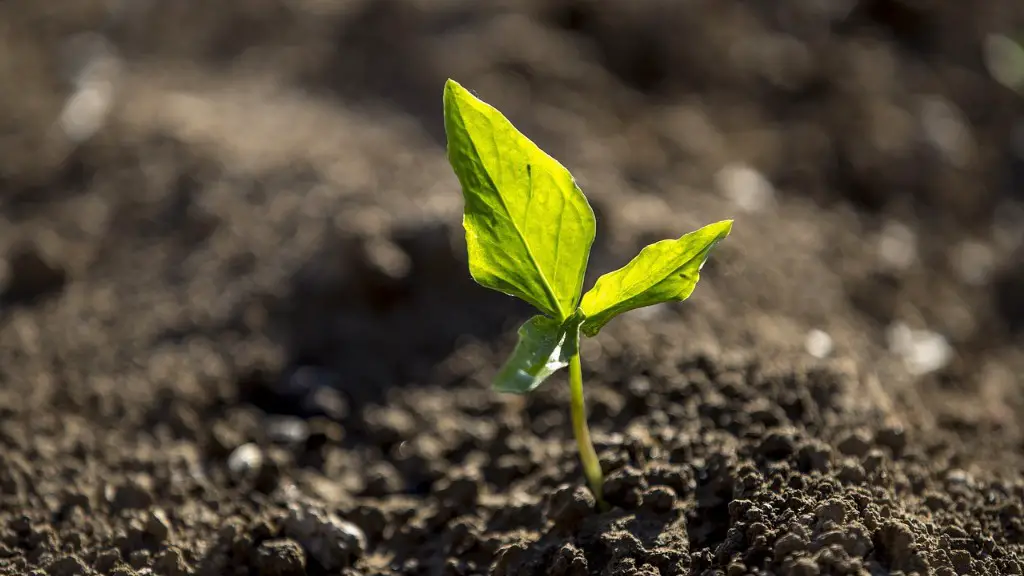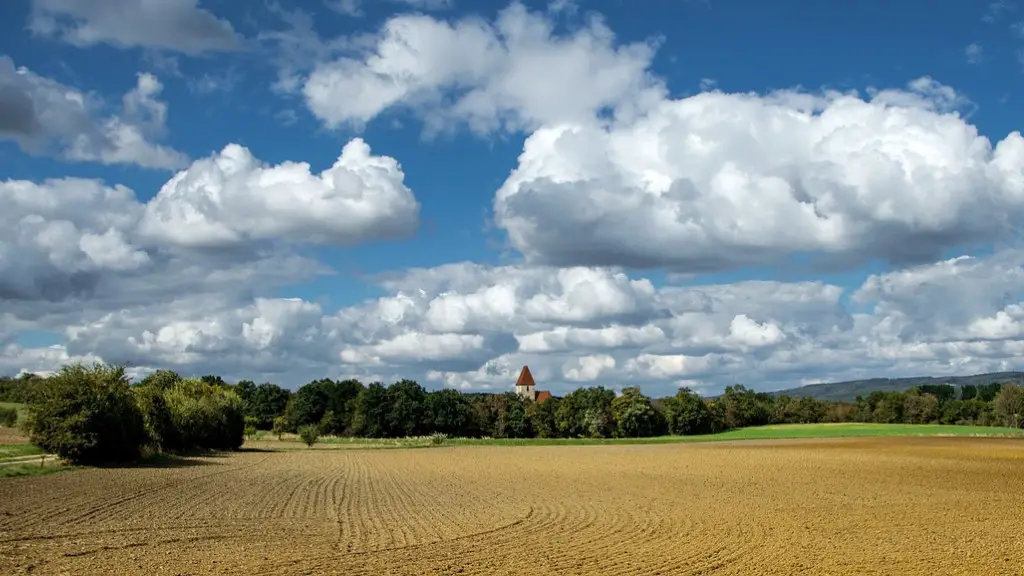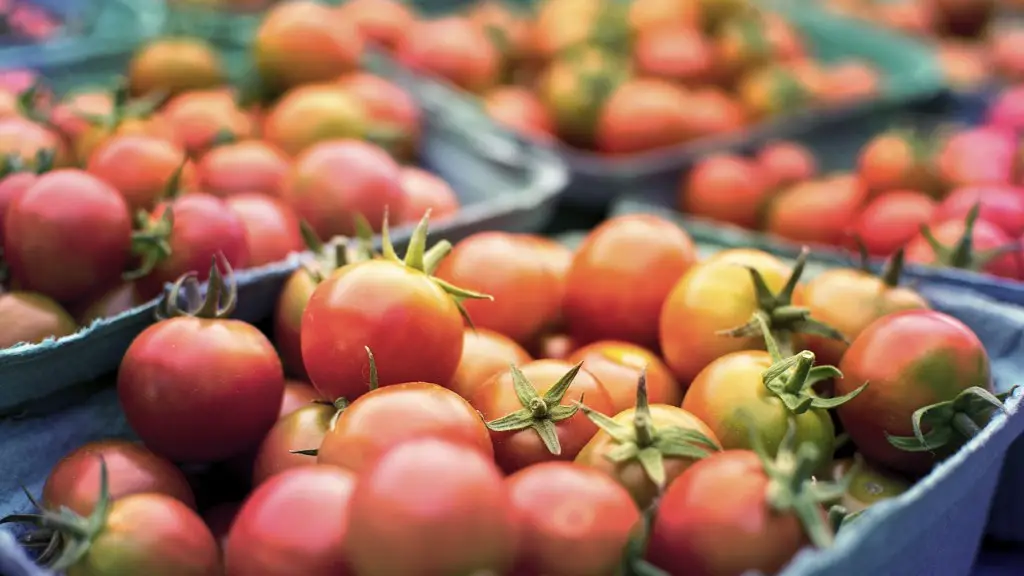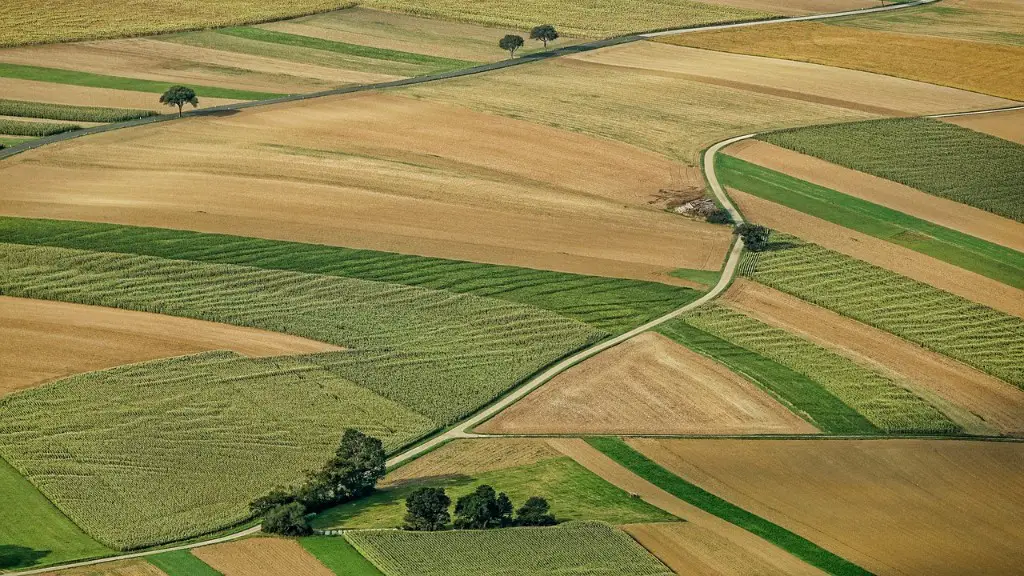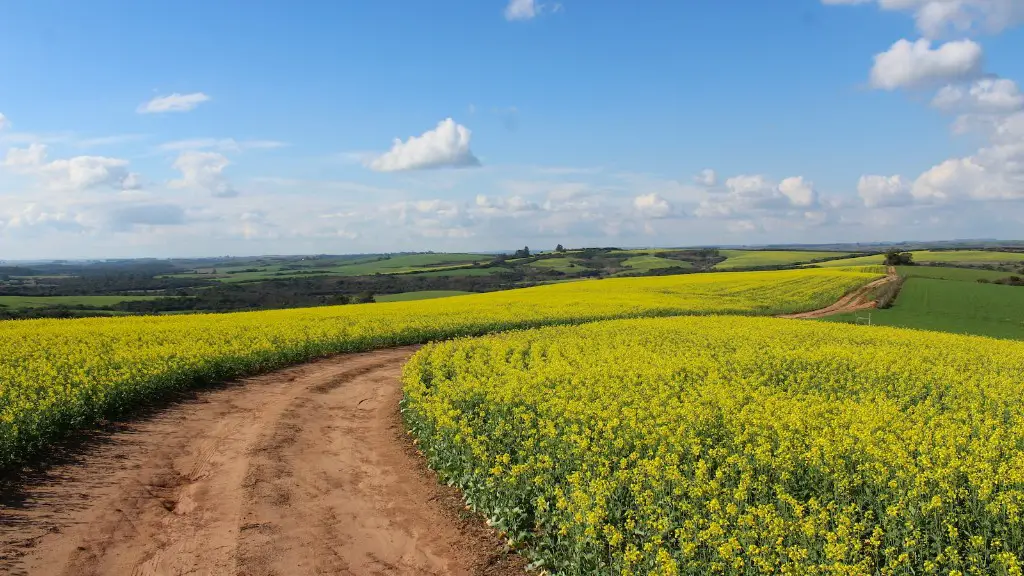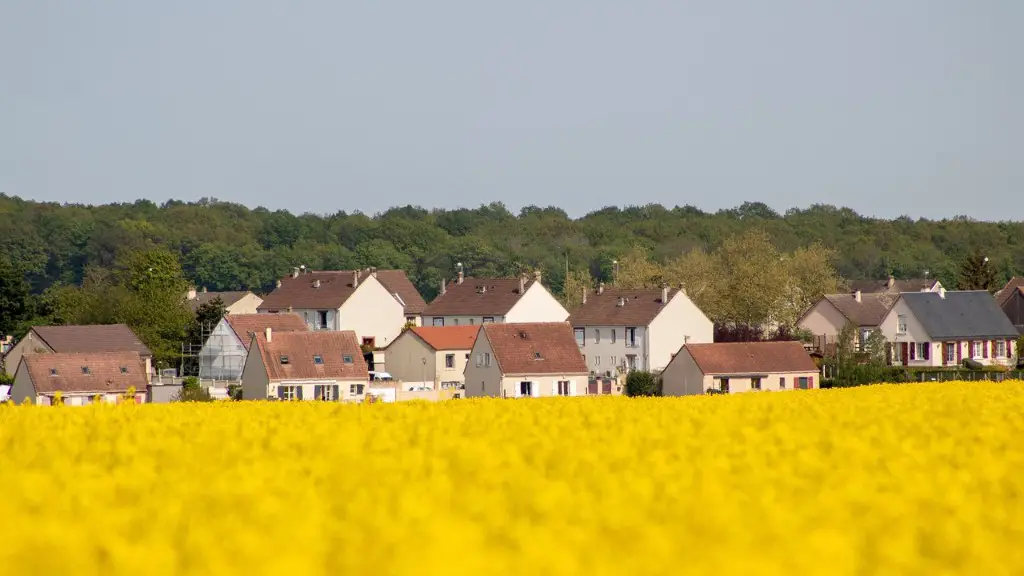AI is quickly becoming an integral part of agriculture, with applications in numerous areas and potential for technological advancement. AI can be used to improve the quality of crops, predict potential nutrient deficiencies, optimize yields, monitor and control pests, reduce labor costs and increase efficiency in farming. AI can also be used for irrigation, livestock monitoring, disease diagnosis, robotic tillage and machinery operation and to improve the accuracy of weather forecasting. With AI, the agricultural industry is heading in the right direction towards improved overall efficiency and crop yield.
AI is able to help farmers optimise their practices in several ways, such as predicting optimal irrigation times, identifying deficiencies in crops, controlling disease, optimising crop yields, and determining the best locations for planting. By using sensors and AI-based tools, farmers can monitor the soil temperature and moisture levels better, helping them detect dry spots that need extra water and also regulate nutrients to certain crops. AI technology can also be used to predict future weather patterns and alert farmers to any possible changes that might affect their crops.
Agricultural robots can be used to automate tedious tasks such as weeding and harvesting. Robotic machines are able to take the laborious tasks that humans used to do off of their hands. AI-enabled robots can be used for many industries such as inspection, pest control, and soil quality testing. Robots can also be used to create a more efficient farm layout and increase efficiency. Automated drones can be used for aerial surveying of fields, which provide data on the health of a particular crop and enable farmers to spot any potential problems before they escalate.
AI can also help farmers diagnose diseases in crops and livestock. AI-based diagnostic systems can be used to scan through various data points related to the health of the crops and animals, allowing the farmer to identify any potential issues. AI-based systems can also determine the best course of action in treating the problem or identify species of pests and recommend the right insecticides or pesticide sprays.
AI predictive analysis can also be used to help farmers forecast yields and anticipate equipment problems. This can help farmers plan better and focus on the areas that need more attention. AI can also be used to develop pest control models that allow farmers to keep ahead of infestations. This can help reduce crop losses and increase the productivity of the farm.
AI can also increase the efficiency of livestock feed systems. AI-driven algorithms can be used to analyze feed intake and optimize the diet for each animal. AI-enabled algorithms can also be used to create more accurate temperature norms for each cow, sheep, or other animal, helping farmers to make informed choices about livestock health.
Improved Efficiency in Farming
AI technology can enable farmers to make more efficient farming decisions. Predictive analytics models can be used to predict the optimal yield of crops and alert farmers to any potential problems ahead of time. Farmers can then plan accordingly to avoid any problems with their crops or losses in production. AI-driven tools can be used in the analysis of soil and weather data, allowing farmers to plan their crops correctly according to the changing environment.
Robots and drones can also be used to automate labour-intensive tasks, such as weeding, harvesting, and monitoring livestock. AI-enabled robots and drones can save farmers time and energy, as they are able to take tasks off of the hands of humans. Drones can effectively survey crops and fields and take high-resolution images to alert the farmer of any potential problems.
AI-powered analytics can also be used to optimize irrigation times and forecast potential nutrient deficiencies in crops. This is important for maintaining optimal crop health and avoiding any potential issues with the crops. AI can also be used to more accurately predict the weather patterns, helping farmers to plan and adjust their farming practices accordingly.
AI can be used to detect and monitor pest infestations, helping farmers to reduce crop losses. AI-based pest control tools can alert the user to any potential issues and suggest the right insecticides and pesticide sprays.
AI-driven analytics can also be used to optimize cattle health and livestock feed. AI-based algorithms can be used to create more informed decisions when it comes to the diet and nutrition of animals. This can help farmers to improve the overall health of the livestock and enhance the efficiency of the feed.
Reduced Labor Costs
AI can drastically reduce the labor costs for farmers. AI-driven robots and drones can be used to automate laborious tasks, such as weeding, harvesting, and monitoring livestock. Robots and drones can effectively take the labor of humans off of their hands, saving them time and energy. AI-powered robots can also help farmers create a more efficient and accurate layout for their farm.
AI-enabled algorithms and sensors can be used to monitor the soil and detect any potential dry spots and nutrient deficiencies. By using AI-based tools, farmers can accuately assess the health of the soil and optimize their irrigation practices. AI-driven analytics can also be used to determine the best locations for planting, so farmers are able to maximize their yields.
AI-based cloud services can also help farmers collect large volumes of data related to their crops, which can be used to monitor and track production. By leveraging this data, farmers are able to analyze trends and patterns in crop yields and identify areas that need improvement. AI-powered analytics can also be used to accurately predict the yield of their crops and adjust their farming practices accordingly.
AI-enabled imaging technology can be used to detect diseases and pests quicker and enable farmers to take the necessary steps to reduce crop losses. AI-based analytics can also be used to accurately predict the weather patterns and help farmers prepare for any changes that might affect their crops.
Enhanced Productivity
AI can help farmers achieve better yields with their crops. AI-enabled machines and tools can help farmers identify nutrient deficiencies and optimize their irrigation times. This can help farmers achieve better yields with their crops and reduce the cost of production. AI-driven analytics can also be used to detect pest infestations and recommend the right insecticides or pesticide sprays to protect the crops.
AI-enabled imaging technology can also help farmers identify diseases quickly, reducing the risk of crop losses. Predictive analytics models can be used to better forecast yields and anticipate potential equipment problems. This can help farmers plan better and increase their overall efficiency.
AI-driven algorithms can also be used to create more accurate temperature norms for each animal, helping farmers to make the best decisions when it comes to their livestock. AI can also optimize feed systems, reducing the amount of time and energy that needs to be invested in feeding their animals. This can help farmers to increase the productivity and profitability of their farm.
AI-based technology can also be used to develop more accurate weather forecasting models, helping farmers to better anticipate any changes that might affect their crops. This can help them plan better and reduce the risk of crop losses.
AI technology can help farmers to improve overall efficiency and increase their yields. AI-driven machines and tools can help farmers to automate laborious tasks, detect diseases and pests quicker, optimize the diet of their livestock, and increase the accuracy of weather forecasting. These tools can help farmers achieve better yields and reduce the labor cost of production, resulting in improved profitability and productivity.
AI-Driven Precision Agriculture
AI-enabled precision agriculture can help farmers to maximize their yields, reduce the cost of production, and optimize farming practices. AI-driven analytics can be used to identify soil and nutrient deficiencies, detect pests and diseases, and help farmers adjust their farming practices accordingly. AI-enabled tools and robots can be used for soil analysis, crop yield optimization, livestock monitoring, and to automate laborious tasks.
AI-based precision agriculture can enable farmers to more accurately forecast crop yields and anticipate potential nutrient deficiencies. AI-driven analytics can also be used to create more accurate temperature norms for each animal, helping farmers to make informed decisions when it comes to their livestock. AI predictive analysis can also be used to help farmers anticipate equipment problems.
AI technology can also be used to monitor the health of crops and alert farmers to any issues before they escalate. AI-based predictive analytics can also be used to detect pest infestations and recommend the right insecticides and pesticide sprays to protect the crops. AI-driven algorithms can be used to optimize irrigation and feeding times, helping farmers to maximize their yields.
AI technology is playing an increasingly important role in agriculture. AI-driven tools can help farmers automate laborious tasks, optimize the diet of their livestock, and increase the accuracy of weather forecasting. AI-based precision agriculture can enable farmers to better forecast yields, monitor crop health, and alert them to any potential problems that might affect their crops.
Conclusion
AI technology is quickly becoming an integral part of agriculture, with applications in numerous areas and potential for technological advancement. AI can help farmers reduce labor costs, improve efficiency, maximize yields, and monitor crop health. AI-enabled analytics can also be used to accurately predict weather patterns, detect pests and diseases, and optimize their irrigation and feeding practices. AI can provide farmers with the tools and data necessary to make better decisions and improve the overall productivity and profitability of their farms.
